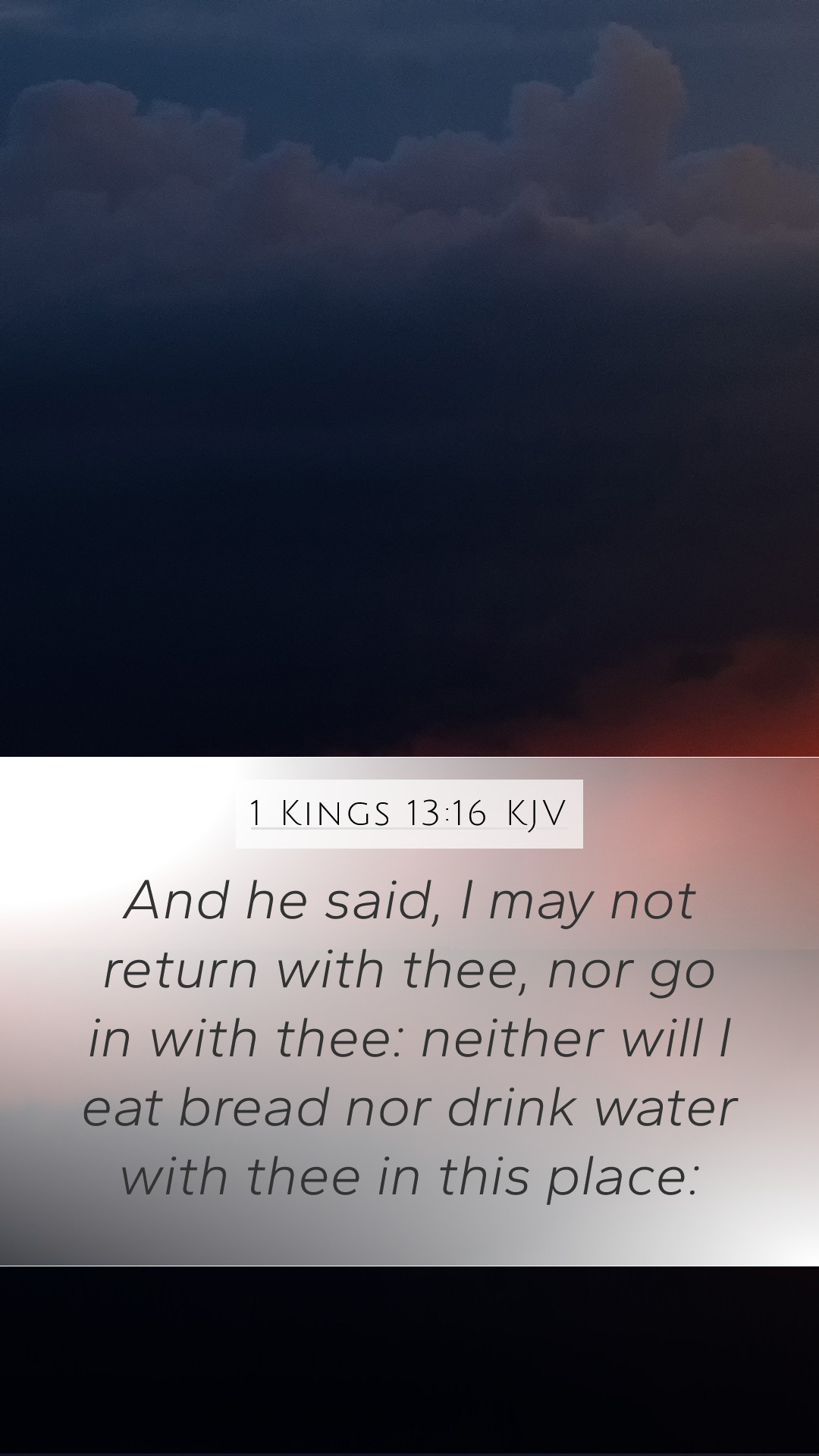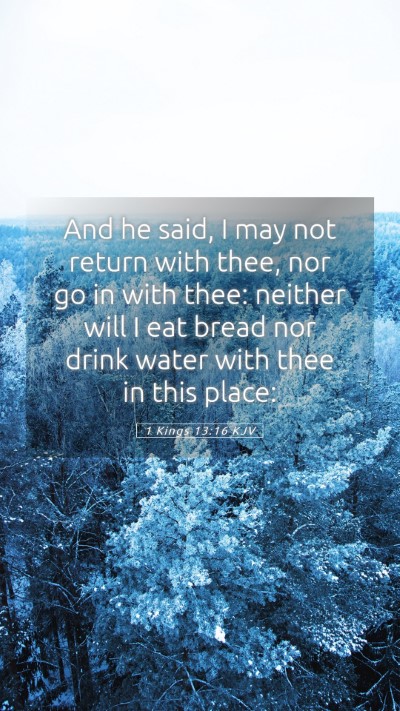Understanding 1 Kings 13:16
1 Kings 13:16 states, “And he said, I may not return with thee, nor go in with thee: neither will I eat bread nor drink water with thee in this place: for it was said to me by the word of the Lord, Thou shalt eat no bread nor drink water there, nor turn again to go by the way that thou camest.” This verse encapsulates profound lessons regarding obedience to God, discernment, and the importance of adhering to divine instruction.
Summary of Bible Verse Meaning
In this passage, we witness the prophet's steadfast commitment to the command of God. His refusal to eat or drink illustrates a deep-seated obedience that prioritizes God’s word over human invitation.
Key Themes and Insights
-
Obedience to Divine Command:
Matthew Henry emphasizes the importance of the prophet's commitment to God's command, highlighting that true obedience involves staying true to God's word without deviation.
-
Discernment in Relationships:
Albert Barnes notes that the prophet's refusal also serves as a lesson in discernment regarding with whom we associate and the influences we allow in our lives.
-
Staying on God's Path:
Adam Clarke offers insight into the significance of not deviating from the path God has set. This reflects on how straying can lead to spiritual jeopardy.
In-depth Bible Verse Commentary
This verse is pivotal in demonstrating the prophet's unwavering faith amidst temptation. Here’s an analysis derived from esteemed commentaries:
1. Matthew Henry Commentary
Henry articulates that the prophet's rejection of food signifies a rejection of earthly comforts to maintain spiritual integrity. He emphasizes that spiritual calling often requires sacrifices that may seem unyielding but are necessary for fidelity to God’s commands.
2. Albert Barnes Exposition
Barnes underscores the aspect of temptation in this narrative. The prophet encounters a tempting invitation that could lead him away from God’s instructions. Barnes points out that social interactions can often divert us from our commitments and warns against compromising our values for acceptance.
3. Adam Clarke's Commentary
Clarke provides historical context, mentioning that the prophet’s strict adherence to God’s word serves as a contrast to the king’s blatant disregard for divine guidance. Clarke drives home the point that the integrity of prophetic ministry must remain untarnished to effectively convey God’s message.
Applications and Reflections
As believers reflect on 1 Kings 13:16, several applications arise:
-
Prioritize God’s Guidance:
In daily decisions, prioritize God’s specific instructions over cultural or social pressures.
-
Maintain Spiritual Vigilance:
Recognize that temptations often come in the form of seemingly harmless relationships or offers that may divert you from God’s path.
-
Commit to Integrity:
Just like the prophet, strive to keep your commitments not just in actions but also in the heart.
Bible Study Insights
This verse serves as a cornerstone for numerous Bible study topics. It encourages participants in Bible study groups to delve into themes of Biblical exegesis, Scripture analysis, and understanding how to apply compelling narratives in the Bible to daily life.
Cross References
- Jeremiah 35:14 - A lesson in obedience to divine commands.
- Luke 9:62 - The call to avoid looking back when following Christ.
- Matthew 4:4 - Emphasizing living by the word of God alone.
Conclusion
1 Kings 13:16 serves not only as an admonition against disobedience in the face of temptation but also as an insightful commentary on the importance of following God's direction profoundly understood through proper Bible verse interpretations and Bible verse explanations. Studying such passages equips believers with the necessary tools to navigate their spiritual journeys.


